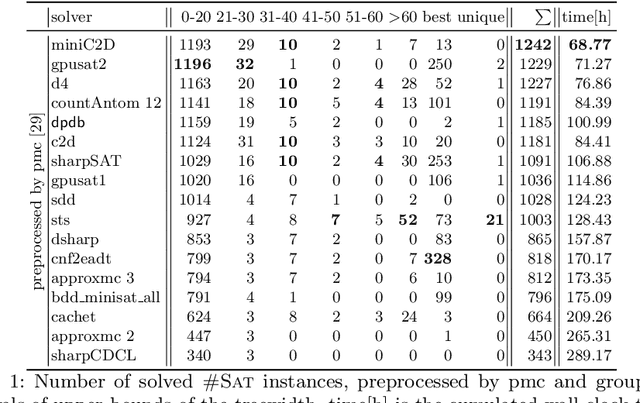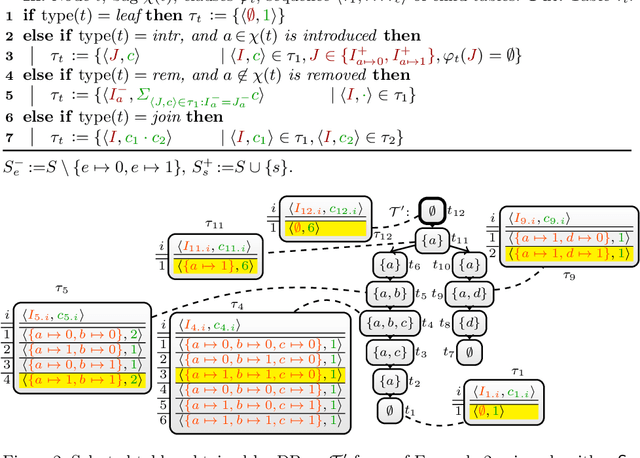Exploiting Database Management Systems and Treewidth for Counting
Paper and Code
Jan 13, 2020



Bounded treewidth is one of the most cited combinatorial invariants, which was applied in the literature for solving several counting problems efficiently. A canonical counting problem is #SAT, which asks to count the satisfying assignments of a Boolean formula. Recent work shows that benchmarking instances for #SAT often have reasonably small treewidth. This paper deals with counting problems for instances of small treewidth. We introduce a general framework to solve counting questions based on state-of-the-art database management systems (DBMS). Our framework takes explicitly advantage of small treewidth by solving instances using dynamic programming (DP) on tree decompositions (TD). Therefore, we implement the concept of DP into a DBMS (PostgreSQL), since DP algorithms are already often given in terms of table manipulations in theory. This allows for elegant specifications of DP algorithms and the use of SQL to manipulate records and tables, which gives us a natural approach to bring DP algorithms into practice. To the best of our knowledge, we present the first approach to employ a DBMS for algorithms on TDs. A key advantage of our approach is that DBMS naturally allow to deal with huge tables with a limited amount of main memory (RAM), parallelization, as well as suspending computation.
 Add to Chrome
Add to Chrome Add to Firefox
Add to Firefox Add to Edge
Add to Edge